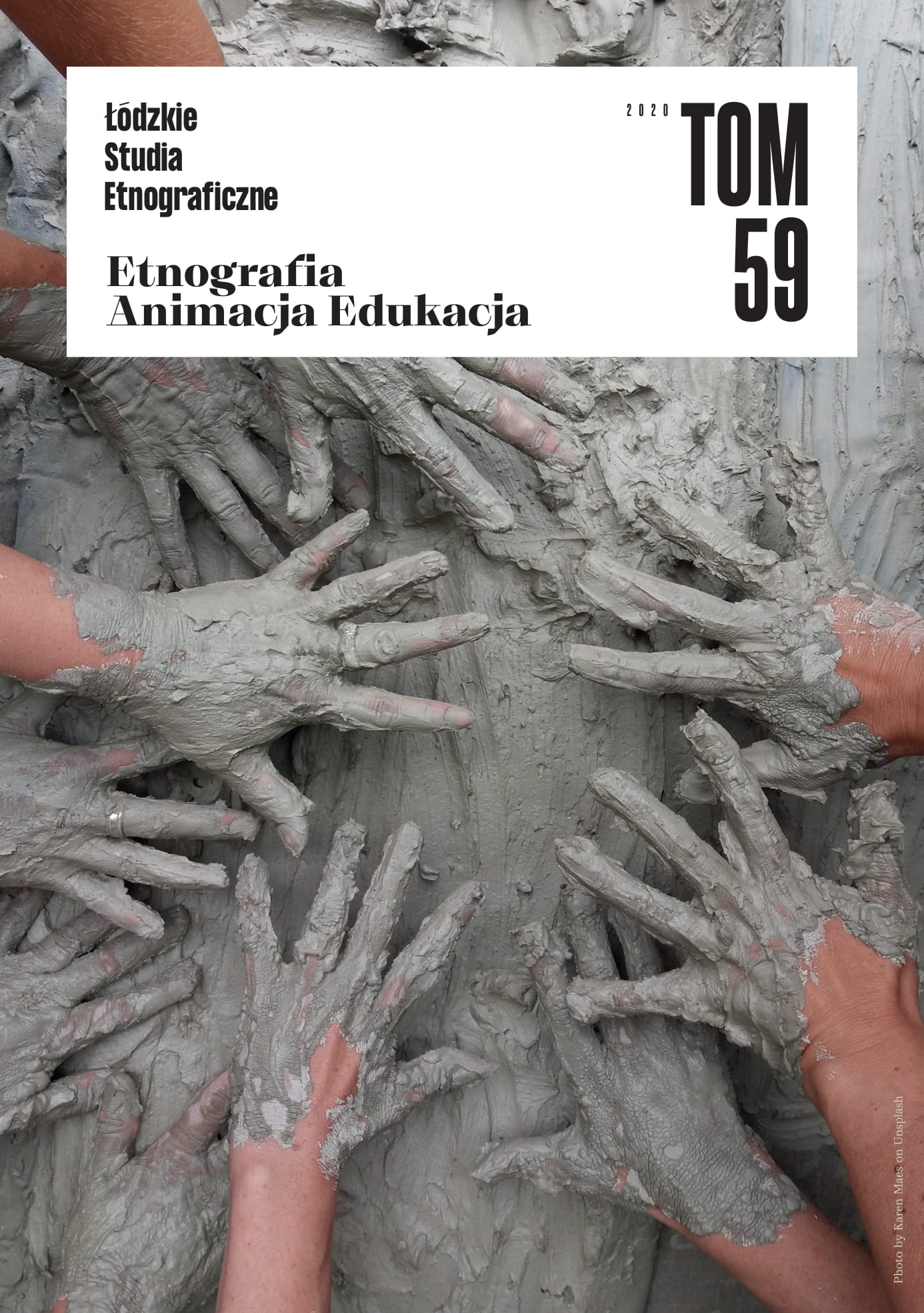Some Remarks on the First Research Season in Soba (Sudan)
DOI:
https://doi.org/10.12775/LSE.2020.59.09Keywords
archaeological site, archaeological traces, ethnographic research, cultural memory, Soba, SudanAbstract
The visible archaeological sites were always important in Sudan. Being an integral part of the local “mystical geography”, they were usually ambivalent but honoured and protected places. Many of those sites were linked with taboos and magical rites, or they gave rise to legends or beliefs in spirits and hidden treasures. However, the meaning of such
spaces was never fixed and could be turned into completely different interpretation. This dynamic is particularly visible in urban centres, where because of rapid urbanization processes
every empty piece of land is urgently needed. This is exactly what happens in Soba, long famous for the remains of the medieval capital of Nubia, today a rapidly developing
suburban area of Khartoum. This presentation aims to discuss the very first findings of the research on the Soba archeological site from the ethnographic perspective. The paper represents an effort to understand the shifting interpretations of the Soba archaeological site, or, in other words, an attempt to answer how the meaning of this spot is differentiating in an urban setting. The ongoing ethnographic research is linked with the archaeological project “Soba – the Heart of Kingdom of Alwa”.
References
Appadurai, A. (1995). Playing with Modernity: The Decolonization of Indian Cricket. W: C.A. Breckenridge (red.), Consuming Modernity: Public Culture in a South Asian World (s. 23–48). Minneapolis, London: University of Minnesota Press.
Castañeda. E.Q. (2008). The „Ethnographic turn” in Archaeology. Research Positioning and Reflexivity in Ethnographic Archaeologists. W: E.Q. Castañeda, Ch.N. Matthews (red.), Ethnographic Archaeologies: Reflections on Stakeholders and Archaeological Practices (s. 25–61). Lanham: Altamira Press.
Drzewiecki, M., Ryndziewicz, R. (2019). Developing a New Approach to Research at Soba, the Capital of the Medieval Kingdom of Alwa, Archeologies: Journal of the World Archaeological Congress, 15, 314–337.
El Tayib, A. (1955). The Changing Customs of the Riverain Sudan. Sudan Notes and Records, 36 (2), 1–69.
Goody, J. (2012). Mit, rytuał, oralność (przeł. O. Kaczmarek). Warszawa: Wydawnictwo Uniwersytetu Warszawskiego.
Jakobielski, S. (1996). Nubia w Okresie Chrześcijańskim. W: M. Tymowski (red.), Historia Afryki
do początku XIX w. (s. 545–568). Wrocław: Ossolineum.
Johnson, M. (2013). Teoria archeologii. Wprowadzenie (przeł. A. Tokarczuk-Różańska). Kraków: Wydawnictwo Uniwersytetu Jagiellońskiego.
Kurcz, M. (2007). Za trzecią kataraktą. Życie codzienne wsi północnosudańskiej. Kraków, Wrocław: Polskie Towarzystwo Ludoznawcze.
Kurcz, M. (2013). Sudan wyimaginowany – refleksje na temat kształtowania się pojęcia Sudan w okresie wpływów europejskich. Etnografia Polska, 57, 23-34.
Mohammed, A.A., Welsby, D. (2011). Early States on the Nile. W: J. Ryle, J. Willis, S. Baldo, J. Madut (red.), The Sudan Handbook (s. 23–31). New York–London: James Currey.
Nora, P. (2009). Między pamięcią i historią. Les Lieux de Mémoire (przeł. P. Mościcki). Tytuł roboczy: Archiwum, 2, 4–12.
Obłuski, A. (2017). Alodia (Alwa). W: S. Aderinto (red.), African Kingdoms. An Encyclopedia of Empires and Civilizations. Santa Barbara–Denver: ABC-CLIO, 15-16.
Salih, A.O.M. (1992). The Folklore of Archaeological Sites: A Case Study from Nawri in the Third Cataract Region. W: J. Sterner, N. David (red.), An African Commitment. Papers in honour of Peter Lewis Shinnie (s. 31–35). Calgary: University of Calgary Press.
Trimingham, S.J. (1965). Islam in the Sudan. London: Oxford University Press.
Yusuf F.H., (2005). The Arabs and the Sudan. From the Seventh to Early Sixteenth Century. Khartoum: SUDATek Limited.
Downloads
Published
How to Cite
Issue
Section
License
- The authors give the publisher (Polish Ethnological Society) non-exclusive license to use the work in the following fields:
- recording of a Work / subject of a related copyright;
- reproduction (multiplication) Work / subject of a related copyright in print and digital technique (ebook, audiobook);
- marketing of units of reproduced Work / subject of a related copyright;
- introduction of Work / object of related copyright to computer memory;
- dissemination of the work in an electronic version in the formula of open access under the Creative Commons license (CC BY - ND 4.0).
- The authors give the publisher the license free of charge.
- The use of the work by publisher in the above mentioned aspects is not limited in time, quantitatively nor territorially.
Stats
Number of views and downloads: 539
Number of citations: 0



